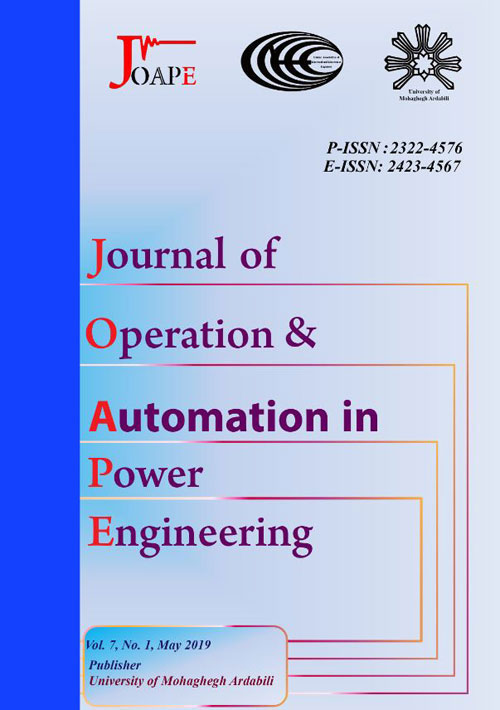Flexibility-Based Congestion Management Considering Consumers' Inconvenience Cost of Demand Response Programs
Author(s):
Article Type:
Research/Original Article (دارای رتبه معتبر)
Abstract:
One of the most important challenges of smart grids is the congestion of transmission lines. A flexible smart grid with demand-side resources can be a suitable solution to manage transmission lines congestion. This paper proposes a multi-objective model with the aim of congestion management through generation rescheduling considering cost and emission purposes in a flexible smart grid. An inconvenience cost for consumers is defined to model the consumers’ unsatisfactory as a consequence of participating in demand response programs (DRPs). Furthermore, a smart grid flexibility index (SGFI) has been presented to show the available flexibility of smart grid as a result of DRPs and gas turbine generators as fast response resources. The DRPs could increase the flexibility of the smart grids due to their impact on flattening the load curve, but this may cause some inconveniences for consumers. On the other hand, participation of consumers in DRPs and the power output gas turbine are associated with uncertainty. In this paper, the uncertainty of consumer's participation in the DRPs has been modeled by Fuzzy-Markov. The proposed multi-objective particle swarm optimization (MOPSO) has been implemented on the IEEE 30-bus system. The results show that the total operation cost including the generation cost, DRP cost, inconvenience cost of consumers, and pollution is reduced. In fact, the share of generation of expensive generators is reduced.
Keywords:
Language:
English
Published:
Journal of Operation and Automation in Power Engineering, Volume:12 Issue: 4, Winter 2024
Pages:
352 to 364
https://www.magiran.com/p2694429


